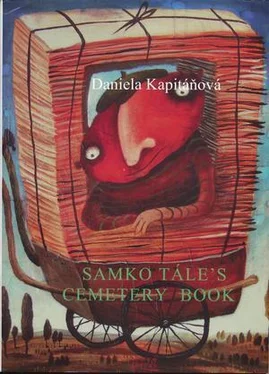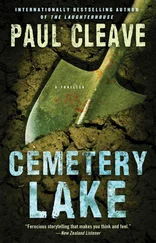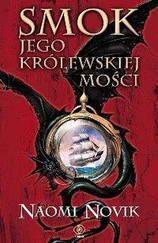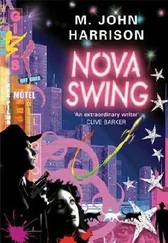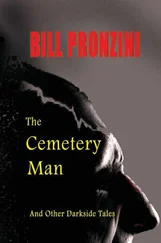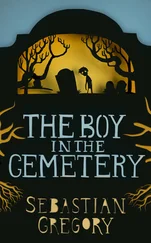Right.
Once I asked old Gusto Rúhe why Alf Névéry had died, and this is what he wrote on the tarmac after doing all his burping and slurping:
‘Because.’
That made me very angry and upset, because fortune-telling is supposed to be about telling people’s fortunes so I started swearing at him because first he’d made me buy him a shot of spirits, and then he wrote this rubbish but he gave me a look and I got frightened that he might put a spell on me like he did on Erik Rak so I stopped swearing because old Gusto Rúhe can write any old rubbish for all I care, right?
Right.
Later I will write about him putting a spell on Erik Rak because I keep forgetting to.
The thing is that people were scared of him after he put a spell on Erik Rak and nobody was willing to do anything about him and make sure he would get into big trouble. Not even Karol Gunár (PhD Social Sciences) was willing to do anything about him and to make sure that he’d get into big trouble, even though he is very kind and not scared of anything in the world.
Yesterday I saw Darinka Gunárová outside the Cultural Centre. I pretended not to see her due to the golden shoes and all the rest of it, but Darinka Gunárová saw me and she called out to me.
She called out my name like this:
‘Samko!’
And then she waved at me.
So I pretended that I only noticed her just then, even though I had noticed her as soon as I saw her.
I always notice everything, for example when my Dad and Margita and Ivana went to Detva to visit my Grandfather, my Mum and I used to look at picture books and my Mum asked me to notice things, for example how many bunnies there were in a picture. And I always noticed all the bunnies and even my Mum was surprised how I noticed all the bunnies.
Anyway.
And when my Dad and Margita and Ivana came back from Detva and started talking about the things that had happened in Detva, my Mum always told them that I had noticed all the bunnies in the book.
And I always got praised for it.
I always notice all the people on the pavement too, including the people that cross over to the other side of the road when they notice me and then I call out their names extra loud so that they don’t think that I didn’t notice them.
And I always used to notice all the bunnies, too.
If I ever notice that rat-woman Angelika Édesová again stealing my cardboard from the Market Place, I will show her, that rat-woman Angelika Édesová. Because I told the shopkeepers in the Market Place that all the cardboard in the Market is mine, so it’s mine. Because I said so. If other people said it was theirs it would be theirs. But I said it first so it’s mine, right?
Right.
Once there was this man in Komárno who used to keep his cardboard for me because I had asked him to and because he was kind-hearted, and he never gave his cardboard to anyone else and he kept it just for me because he was very kind-hearted and his name was Adam Miller.
Adam Miller was a very modest shopkeeper because he had three daughters as well as a mother and a wife and a sister. They all lived in the same flat and that’s why they had to be very modest. But Adam Miller was also very modest because he was kind-hearted and he used to keep cardboard for me due to his kind-heartedness.
But then he got a very serious illness which was so serious he couldn’t be a shopkeeper any more and had to stay at home all the time. And due to that he started to prepare his last wish. A last wish is the kind of wish that people make regarding their last wish.
And when Adam Miller died it turned out that he had come up with a last wish that outraged everyone and it made all the Miller women cry because Miller’s last wish was to be buried with his trousers undone so that it would stick out from his trousers. That thing. His penis.
And his other last wish was that they should cover both his eyes with a black patch so that he would never have to look at this bunch of dogs again. But what he really meant was not dogs, but humans. And all the Miller women cried regarding this outrage because it was very offensive but the thing was, it was Miller’s last wish which meant that they had to do it. So they didn’t know what was what and why and how and everyone felt sorry for them and everyone was outraged.
I was outraged, too.
Because if they had followed Miller’s last wish it would have offended the whole Cemetery, and the whole Cemetery would have been outraged.
So in the end the Miller women said that Adam Miller had been so ill that he didn’t know what he was doing, which meant that his last wish didn’t really count. And that relieved everyone.
It relieved me, too.
So then they could bury Adam Miller properly and after that everyone remembered him fondly, and everyone said what a modest shopkeeper and what a kind-hearted man he had been.
I remembered him fondly, too.
Adam Miller was a shopkeeper regarding women’s clothing.
Anyway.
Once Alf Névéry heard me swear at people who were shouting at me and he said that I swore like Miller. That gave me a real fright because I didn’t know which Miller he meant, because Adam Miller was a very kind-hearted man and everyone remembered him very fondly. But he said that he meant a totally different Miller who wasn’t from Komárno but from America and that he wasn’t swearing in real life, only in books. That relieved me. And I said that I would like to see this Miller from America swearing, but Alf Névéry said that he didn’t have his book in Slovak, only in English. So I have never found out how this Miller from America swore. Because America is a long way away.
Anyway.
But one thing I don’t get is this. If Alf Névéry knew so many different languages from all around the world, how come he never laughed at the humorous sentences that are humorous in all the different languages?
I’m sure Alf Névéry would have laughed if he had been humorous. But he wasn’t humorous and that’s why he never laughed.
For example, I am very humorous. The way you can tell that I’m humorous is regarding the jokes I can tell. One of the jokes I can tell goes like this:
Two men are talking, and the first man says to the second, ‘My dog’s got no nose.’ The other man asks him, ‘How does he smell?’ The first man answers, ‘Awful!’
Meaning smells things, and smells like stinks. The first time ‘smell’ means ‘sniffing’, the second time ‘stinking’. It’s a very good joke because you have to have I.Q. to get the thing about smelling.
But I’ve got I.Q. and I’m very humorous, too.
But what I hate is when people tell jokes about the Communists. Nobody used to tell more jokes about the Communists than my Dad. Except that he used to tell jokes about others, too Like the Jews, the Partisans, the Hungarians and the Russians.
This joke about the dog smelling, I told it to Žebrák too because it’s a joke that I always tell everyone, and Žebrák had a good laugh but not due to the joke but because he likes to make up all sorts of funny rhymes. They don’t have any real meaning, they are just rhymes that rhyme. For example, he makes up rhymes that go like this:
Slap her / Slapper
or
Master Bait / Masturbate
or
Polygon / Polly gone
Anyway.
Rhymes like this can be quite funny and sometimes they make me laugh but they are not half as funny as the sentence:
Attention, attention, the balalaika concert is off because that cunt Volodya nicked the balalaika.
That’s the funniest humorous sentence ever. It makes me laugh every time I say it.
My Grandfather from Detva also knew lots of funny and humorous sentences. For example the one that goes like this:
‘ Kezét csókolom , how d’you do?
Читать дальше
